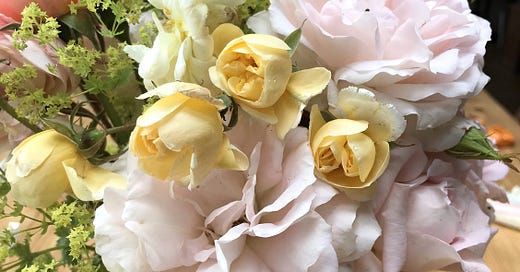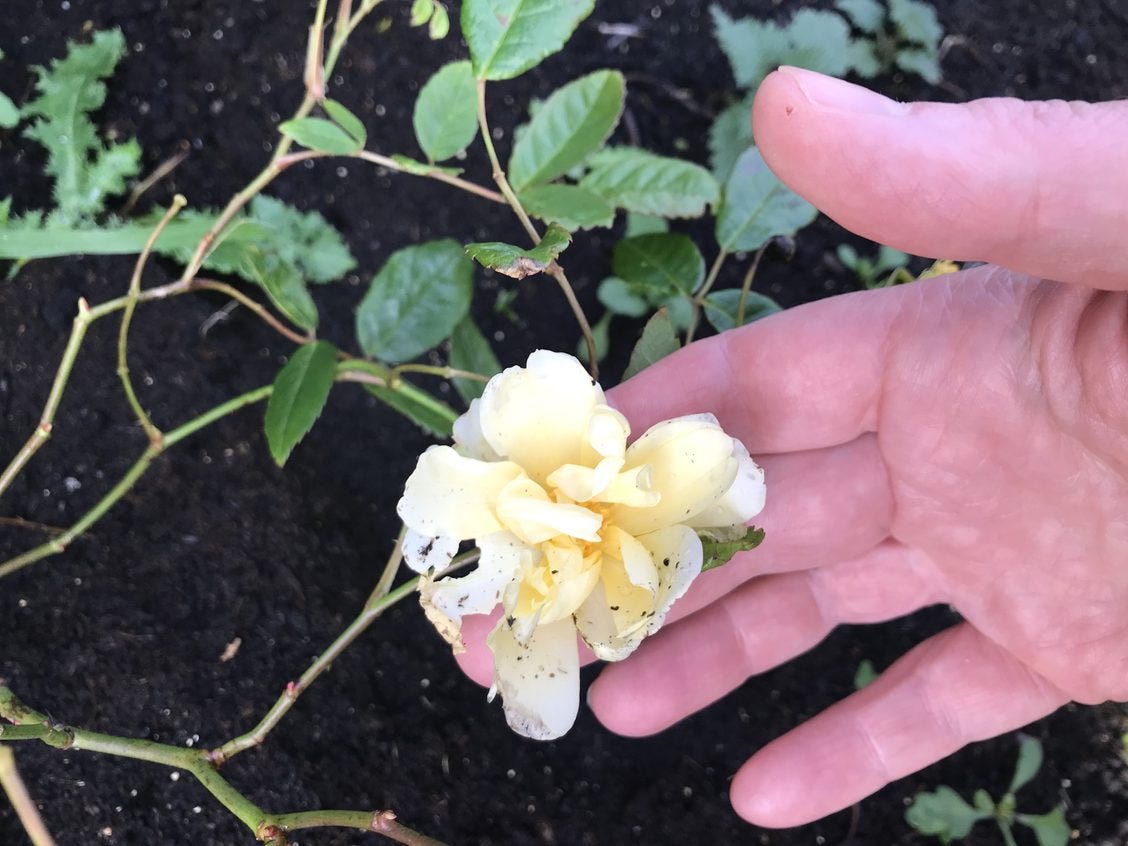These are trying times.
It’s fair to say that these are trying times. Each news bulletin seems to bring more evidence of the madness, destructiveness, greed and mendacity of those who hold power. My Twitter feed is full of righteous anger, denunciations and calls to action to fight for the survival of everything we cherish; nature, community, learning, conviviality, health, a decent life of modest prosperity.
In these circumstances making art, or writing, that is anything other than a direct call to arms can feel a bit…pointless.
Why work to create beauty when there seems so much more important and urgent work to do? Shouldn’t all forms of art be enlisted as creative activism to help bring about the changes we want to see?
I come a bit late to Rebecca Solnit’s most recent book “Orwell’s Roses” (it was published last year) but it has landed for me just when I needed it, because it is just these questions she starts to tackle.
Solnit is a writer whose associative, free-ranging, essayistic style I have long cherished. This latest book takes the writer George Orwell’s love of roses as a starting point and out of this forges a path through a tangled and fertile garden of ideas about gardening, politics, resistance and the necessity of beauty.
In 1936, as the world was spiralling towards the conflagration of the Spanish Civil War and World War Two, Orwell planted some cheap rose bushes from Woolworths in his garden. Solnit explores how the picture we have of George Orwell as a cheerless, grim-faced consumptive writing angry polemics against totalitarianism is not the whole story. Orwell also celebrated the necessity of beauty, especially the humble beauty to be found in the domestic, ordinary, overlooked things like sixpenny rose bushes from Woolworths.
A posy of Orkney roses in July
This was, she argues, of a piece with his politics. Orwell understood the necessity of beauty:
“The argument that all art must exhort us overlooks the needs and desires of those already engaged and what fuels them, and what the larger work of building a society concerned with justice and compassion might be…..Art that is not about the politics of this very moment may reinforce a sense of self and society, of values and commitments, or even a capacity to pay attention, that equip a person to meet the crises of the day.”
“The mere exhortation to engage or tirades about what’s wrong do not necessarily produce the empathic imagination, the insights, principles, orientations, collective memories that engagement requires.”
“The least political art may give us something that lets us plunge into politics, that human beings need reinforcement and refuge, that pleasure can fortify us. The pleasure that is beauty, the beauty that is meaning, order, calm. Orwell found this refuge in natural and domestic spaces, and he repaired to them often and emerged from them to go to war on lies, delusions, cruelties and follies.”
Solnit recounts how Orwell received a letter from a woman who was outraged that he should waste his time enjoying his roses when there were so many urgent wrongs to be righted. She writes:
“Beauty can be both what one does not wish to change and where one wishes to go, the compass or rather North Star for change.
If we go too long without sitting around and thinking about clouds we might forget how to do so or why. The woman who wrote to upbraid Orwell for talking about roses seemed to think that paying attention to that which does not need to be changed is idleness, dissipation, and distraction. I’ve talked about it as, instead, regeneration of energy to face destruction…a study of the templates of the desirable and good….a kind of seed that needs to be tended or propagated more widely.”
The last rose of the year, muddied and battered, but still hanging on this afternoon.
We all need, more than ever, to stop and smell the roses from time to time, to find moments of refuge in whatever small beauties we can find.
May you find time to stop and smell the roses,
Sam








